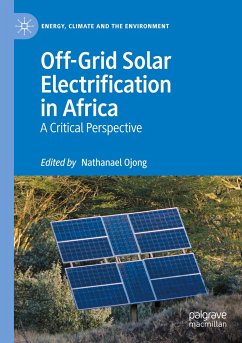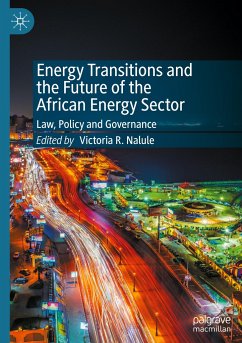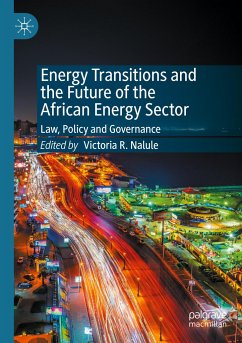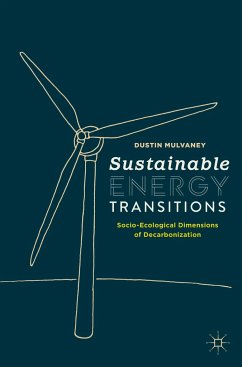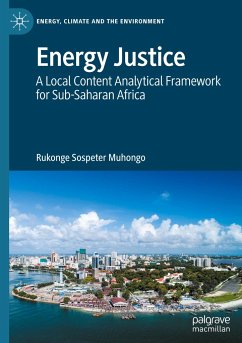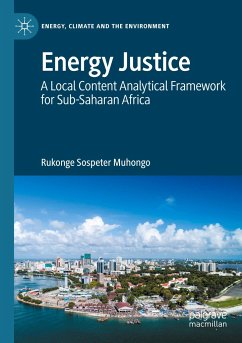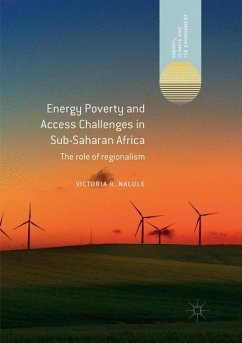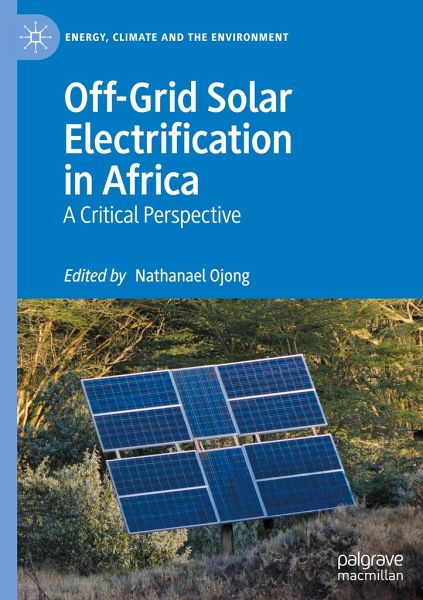
Off-Grid Solar Electrification in Africa
A Critical Perspective
Herausgegeben: Ojong, Nathanael

PAYBACK Punkte
49 °P sammeln!
This book evaluates off-grid solar electrification in Africa by examining how political, economic, institutional, and social forces shape the adoption of off-grid solar technologies, including how issues of energy injustice are manifested at different levels and spaces. The book takes a historical, contemporary, and projective outlook using case studies from pre- and ongoing electrification communities in non-Western countries such as Ghana, Kenya, Rwanda, Senegal, Malawi, Tanzania, and Nigeria. Beyond the diverse nature of these countries in terms of their geographical location in West, East,...
This book evaluates off-grid solar electrification in Africa by examining how political, economic, institutional, and social forces shape the adoption of off-grid solar technologies, including how issues of energy injustice are manifested at different levels and spaces. The book takes a historical, contemporary, and projective outlook using case studies from pre- and ongoing electrification communities in non-Western countries such as Ghana, Kenya, Rwanda, Senegal, Malawi, Tanzania, and Nigeria. Beyond the diverse nature of these countries in terms of their geographical location in West, East, and Southern Africa, each offers a different experience in terms of colonial history, economic and institutional infrastructure, social and cultural context, and level of adoption of off-grid solar technologies. Notably, the book contributes to the off-grid solar and energy justice scholarship in low-income non-Western contexts. It examines various approaches to energy justice and doesso by engaging with Western and non-Western philosophical notions of the concept. It takes into consideration the major principles of Ubuntu philosophy with the adoption of off-grid solar technologies, hence enriching the energy justice framework. Finally, the book interrogates the degree to which the social mission that catalysed the expansion of the off-grid solar sector is being undermined by broader structural dynamics of the capital investment upon which it is reliant. It also argues that the ascendance of off-grid solar electrification in Africa is transformative in that it enables millions of people without access to or facing uncertainties linked to centralised grid energy to have access to basic energy services.





